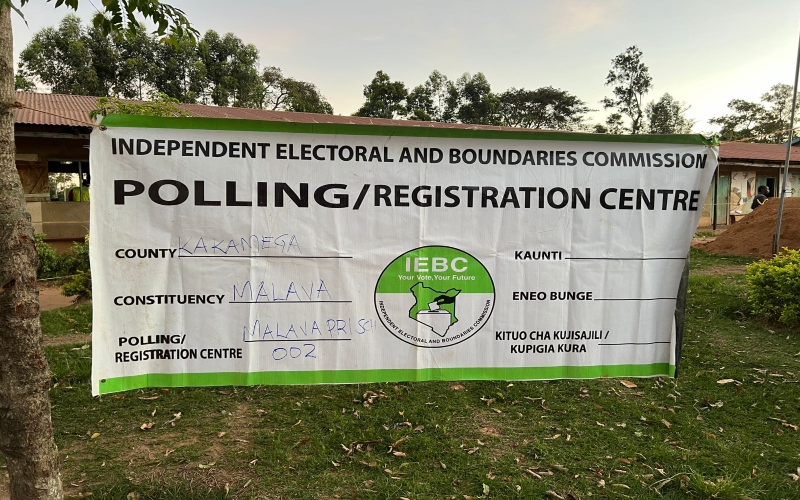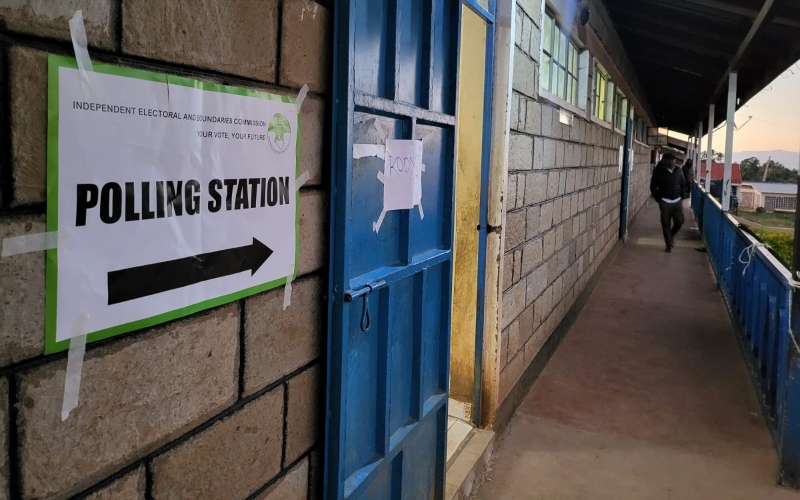KWS dismisses claims Ritz-Carlton Safari Camp blocks wildebeest migration in Maasai Mara

KWS said more than 20 years of GPS tracking data from collared wildebeest show that the migration uses the entire reserve without a specific preferred route.
The Kenya Wildlife Service (KWS) has dismissed claims that the Ritz-Carlton Safari Camp is blocking wildebeest migration routes in the Maasai Mara National Reserve, saying the camp meets all ecological and regulatory standards and has no impact on the annual migration corridors.
In a statement on Thursday, the service said more than 20 years of GPS tracking data from collared wildebeest show that the migration uses the entire reserve without a specific preferred route, and the camp falls within a designated low-use tourism zone.
More To Read
- MPs raise alarm over alienation of 47,000 acres in Maasai Mara conservancy
- Court sets aside Sh611 million award to Equity Bank, citing bias
- Tourism Regulatory Authority launches nationwide crackdown on unlicensed operators
- State tightens Maasai Mara rules after viral footage showed tourists blocking wildebeest migration
- Uproar as tourists block wildebeest crossings during Maasai Mara migration
- Maasai Mara enters World Book of Records for greatest wildlife migration
“The Ritz-Carlton safari camp is situated within a designated tourism investment low-use zone, as provided for in the Maasai Mara National Reserve Management Plan, 2023 - 2032. The zonation in the reserve was established based on comprehensive scientific assessments, ecological sensitivity analyses, and spatial planning frameworks jointly developed by the National and County governments,” KWS said.
The clarification follows a viral video circulating online since last week showing wildebeest reportedly being blocked at a river crossing near the Sand River. KWS dismissed the video, terming it misleading and urged the public to rely on verified and official information.
It emphasised that several images and narratives circulating online relate to historical events from 2018 and 2020. These materials, the agency said, are “outdated, misleading, or presented without proper context, and may also reflect opposing and competing commercial interests surrounding tourism investments in Mara.”
The service reassured the public that all ecological, environmental and regulatory requirements were thoroughly met and validated before approval of the Ritz-Carlton Safari Camp.
“Every tourism investment within parks, reserves and sanctuaries is subject to stringent environmental assessment to ensure alignment with conservation priorities and the integrity of Kenya’s protected areas and ecosystems,” the service said.
The agency also emphasised that the wildebeest migration is a globally recognised natural spectacle, recently acknowledged by the World Book of Records (UK) and the World Tourism Market (London) as the world’s greatest annual terrestrial wildlife migration and Africa’s leading tourism destination, respectively.
“This distinction reaffirms Kenya’s exceptional natural heritage and our enduring leadership in sustainable tourism and wildlife conservation,” KWS said.
The Government of Kenya, KWS noted, prioritises the protection of wildlife corridors and dispersal areas. The agency cited initiatives such as the Cabinet-approved Nairobi National Park–Athi-Kapiti corridor, highlighting a “firm resolve to safeguard all existing wildlife corridors, including those within the wider Maasai Mara ecosystem.”
The Service further noted that the integrity of the wildebeest migration corridors has been scientifically verified using GPS collar data collected from migratory wildebeest between 1999 and 2022. The data include tracks from more than 60 collared animals, with each GPS fix representing herds of 2,000 to 100,000 wildebeest.
“The long-term wildebeest collar data indicate that the entire Maasai Mara National Reserve is a general dispersal area for the wildebeest,” KWS said, adding that the dataset “clearly points to the fact that migrating wildebeest are utilising the entire breadth of the Kenya–Tanzania border within the Reserve (approximately 68 km wide), without a specific preferred route or corridor.”
It also said that the Mara, Sand and Talek rivers, along which safari lodges and campsites are established, have long allowed wildlife to move freely.
“Along the Sand River alone, there are five (5) permanent safari camps and over two (2) seasonal camps, and none has received such negative publicity as the Ritz Carlton Safari Camp is receiving now,” KWS said.
“Long-term monitoring data conclusively indicate that the location of the Ritz-Carlton Safari Camp and the other five safari camps along the Sand River do not fall within, obstruct, or interfere with any wildebeest migration corridors.”
KWS reaffirmed its commitment to balancing responsible tourism investment, ecological protection and community socioeconomic advancement.
“We reaffirm our dedication to preserving the wildebeest migration for current and future generations, and call upon Kenyans to remain patriotic and always provide correct and accurate information about our beloved country, Kenya,” the agency said.
Top Stories Today
















































